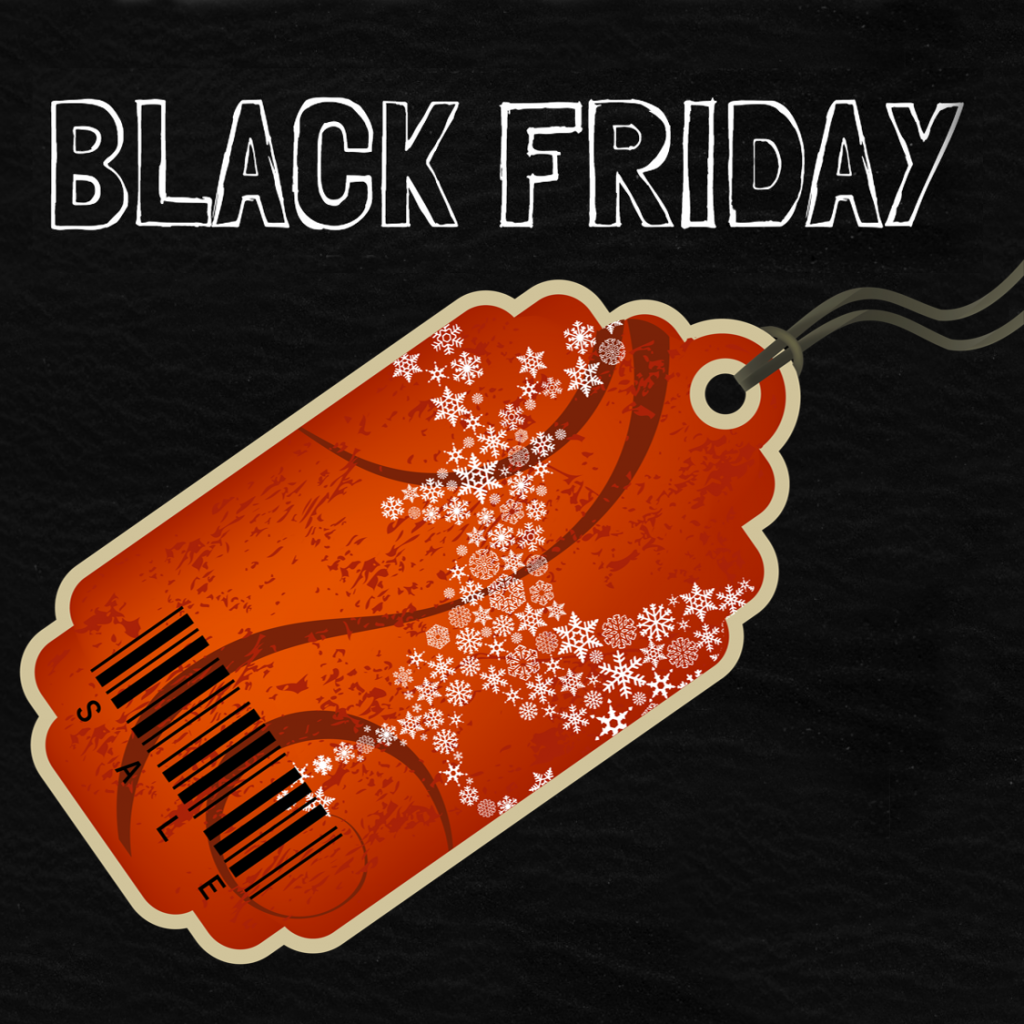This Black Friday will be like no other. To understand why it will be so different, we need a little history lesson. According to BlackFriday.com, “The term ‘Black Friday’ was coined in the 1960s to mark the kickoff to the Christmas shopping season. ‘Black’ refers to stores moving from the ‘red’ to the ‘black,’ back when accounting records were kept by hand, and red ink indicated a loss, and black a profit. Ever since the start of the modern Macy’s Thanksgiving Day Parade in 1924, the Friday after Thanksgiving has been known as the unofficial start to a bustling holiday shopping season.” Maxwell Strachan (@maxwellstrachan) offers a totally different explanation for the origin of Black Friday. He writes, “It’s totally understandable if you think the term ‘Black Friday’ is a direct linguistic descendant of ‘in the black,’ accounting jargon for turning a profit. After all, the day after Thanksgiving is now one of the biggest shopping days of the year, an annual delight to retailers hoping to give their bottom lines a nice little boost in the year’s final weeks. But the truth is that Black Friday owes its name to the Philadelphia Police Department, which did not have profitability in mind.”[1] He explains:
“One thing to remember is that, long before the rest of us started calling it Black Friday, retailers hoped to start the holiday shopping season with a bang by offering ‘can’t miss’ deals right after Thanksgiving. … People being people, they have long stormed stores, caused traffic jams and been generally terrible to one another in an effort not to miss these deals. In the middle years of the twentieth century, the scene was often particularly bad in Philadelphia, where the annual Army-Navy football game was regularly played on the weekend after Thanksgiving. Lots of cars, lots of traffic, lots of chaos. Sound familiar? So at some point in the 1950s or 1960s — some put the date exactly at 1966 — the Philadelphia Police Department started to refer to the day after Thanksgiving as ‘Black Friday,’ with the unrealistic hope that people would find the whole shebang distasteful and opt out of the collective consumer madness. At a minimum, it was a derisive way to describe an unpleasant day in the life of a Philly cop.”
Regardless of which origin story you believe, the fact remains Black Friday has historically been a day widely anticipated by brick-and-mortar stores. This year, you can probably forget people storming stores, crowding aisles, and getting in one another’s way — thanks to COVID-19.
Touchless Black Friday
Journalist Melissa Repko (@melissa_repko) reports, “As the holiday season approaches, the Centers for Disease Control and Prevention is adding a common annual tradition to its higher risk category: Shopping at crowded stores. … And, it noted, shopping online rather than in person on Black Friday or the days that follow are lower risk.”[2] Although retailers understand the need for such guidance, they regret it has to be issued and are bracing for its impact on holiday shoppers. Journalists Jordyn Holman (@JordynJournals), Kim Bhasin (@KimBhasin), and Katherine Doherty (@KatLeighDoherty) explain, “The holiday playbook of opening stores right after family Thanksgiving feasts, lining the weekend with doorbuster sales, and cramming shops with inventory and workers has been thrown out the window.”[3] They add, “American malls and stores are desperate to make Black Friday happen. Traditional brick-and-mortar holiday shopping has been declining for a decade as consumers flock to e-commerce, and the Covid-19 outbreak and recession will only hasten its fall.”
To entice buyers to shop at brick-and-mortar locations, retailers are making some big adjustments. Holman and her colleagues report, “Stores will be reconfigured, with fewer racks on the floor and service stations spread farther apart.” Because of COVID-19 concerns, those changes may not be sufficient to actually get shoppers inside stores. Sapna Maheshwari (@sapna) and Gillian Friedman (@gillianreporter) observe, “Rather than enticing shoppers into stores with holiday sales events, retailers like Walmart and Target recently said they would try to temper the crowds by closing on Thanksgiving Day and putting their best deals online earlier than usual. Instead of conversing with browsing shoppers, many store workers will be spending their time handing off purchases to people who pull up to the curb in their car.”[4] Maheshwari and her colleague Michael Corkery (@mcorkery5) assert curbside pickup could be a savior for physical stores. They explain, “The popularity of curbside pickup reveals that the future of retail is not just more packages piling up on people’s doorsteps. Beyond satisfying the need for contactless shopping in the pandemic, it taps into Americans’ desire to drive to a store, a pull that can be just as strong as, or even stronger than, the convenience of home delivery. … The rise in curbside pickup, part of a larger surge in e-commerce sales, has implications for preserving retail jobs, though workers’ duties are likely to transform. It is also helping to keep brick-and-mortar spaces relevant when thousands of storefronts have emptied out as more customers move online.”[5]
The importance of the digital path to purchase
For years, the trend has been for shoppers to buy more items online. Even when consumers have shopped in stores, chances are they are using their smartphones to checkout products and prices. This year, Holman and her colleagues report, “Online sales will take center stage. Supply chains will be strained like never before as businesses try to keep up with record e-commerce purchases, with distribution centers hiring tens of thousands more workers to package and ship orders.” They add, “Inventory problems are expected to affect shipping as distribution centers, already pressured by record online purchases during the pandemic, will be stressed during the busy shopping season. Three-fourths of Americans say they will do at least some of their holiday shopping online this year, compared with 65% last year, according to Accenture. Online deal seekers had already been chipping away at Black Friday sales in recent years, and now consumers have grown more comfortable with shopping for all types of goods on the web. More than 90% of consumers said they will choose online Black Friday discounts over in-store doorbusters, according to a recent survey by digital coupon provider RetailMeNot Inc.”
Concluding thoughts
Faced with having to wear masks, discouraged from touching merchandise, and encouraged to social distance, consumers are unlikely to overcrowd stores on this Black Friday. Retailers who have strong omnichannel operations in place will likely come through the holiday shopping season than those that don’t. If you are a consumer and have decided to venture out today, please take the appropriate precautions to protect yourself and others.
Footnotes
[1] Maxwell Strachan, “‘Black Friday’ Originally Meant Something Much, Much Darker,” Huffington Post, 27 November 2013.
[2] Melissa Repko, “As holidays approach, CDC puts shopping at crowded stores on Black Friday in high-risk category,” CNBC, 28 September 2020.
[3] Jordyn Holman, Kim Bhasin, and Katherine Doherty, “Retailers Brace for a Black Friday Without Crowds,” Bloomberg Quint, 7 October 2020.
[4] Sapna Maheshwari and Gillian Friedman, “Ho, Ho, Hum: Struggling Retailers Brace for a Muted Holiday Season,” New York Times, 2 September 2020.
[5] Sapna Maheshwari and Michael Corkery, “Customers Still Like to Shop in Person, Even if They Get Only to the Curb,” New York Times, 9 October 2020.





